Dr. Davida Crossley Isolates Odie_Owl The Phage
In preparation for teaching the new BSB 171 Biology I course, Dr. Davida Crossley, Associate Professor of Microbiology, took a summer workshop held by the Howard Hughes Medical Institute (HHMI) at their labs in Baltimore, MD.
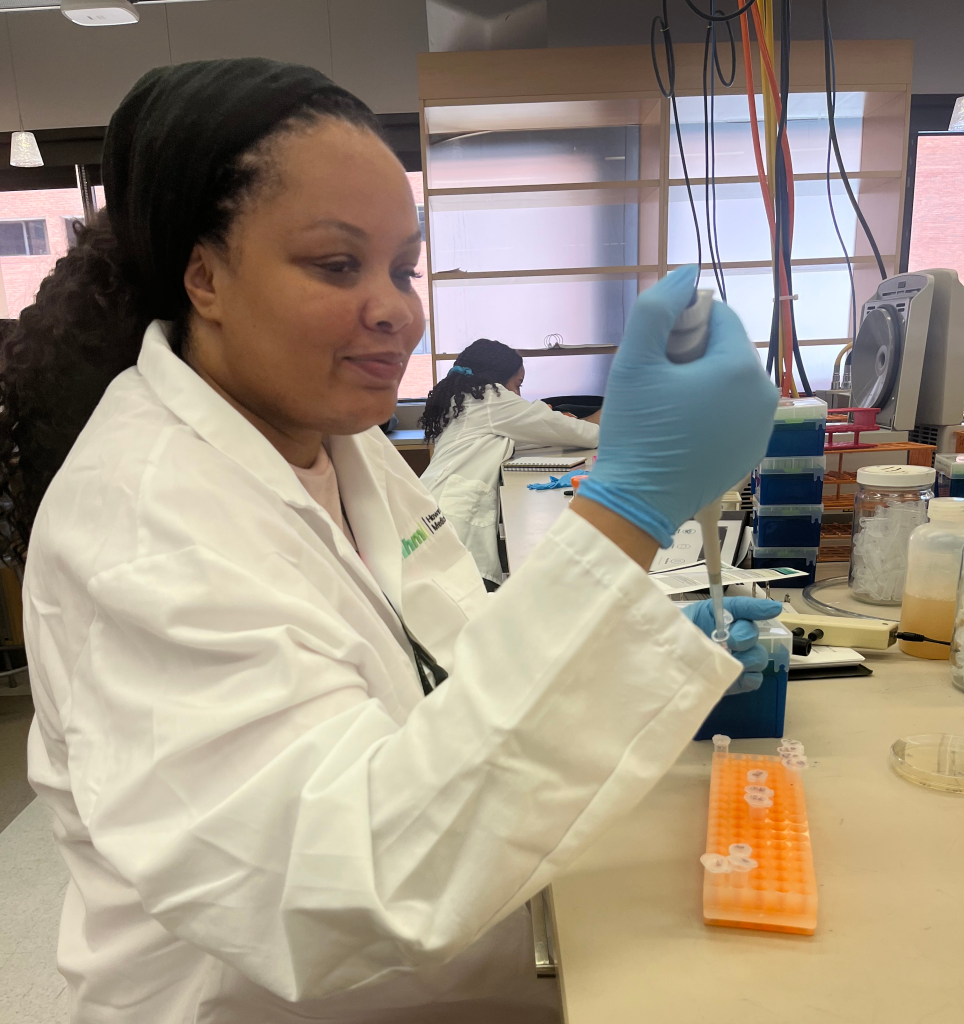
Dr. Robert Sample, Associate Professor of Microbiology, and Dr. Brian Burnes, Associate Professor of Biology Education, also attended the HHMI workshop. Dr. Crossley, Dr. Sample, and Dr. Burnes will share teaching BSB 171 and its follow-up BSB 172 Biology II.
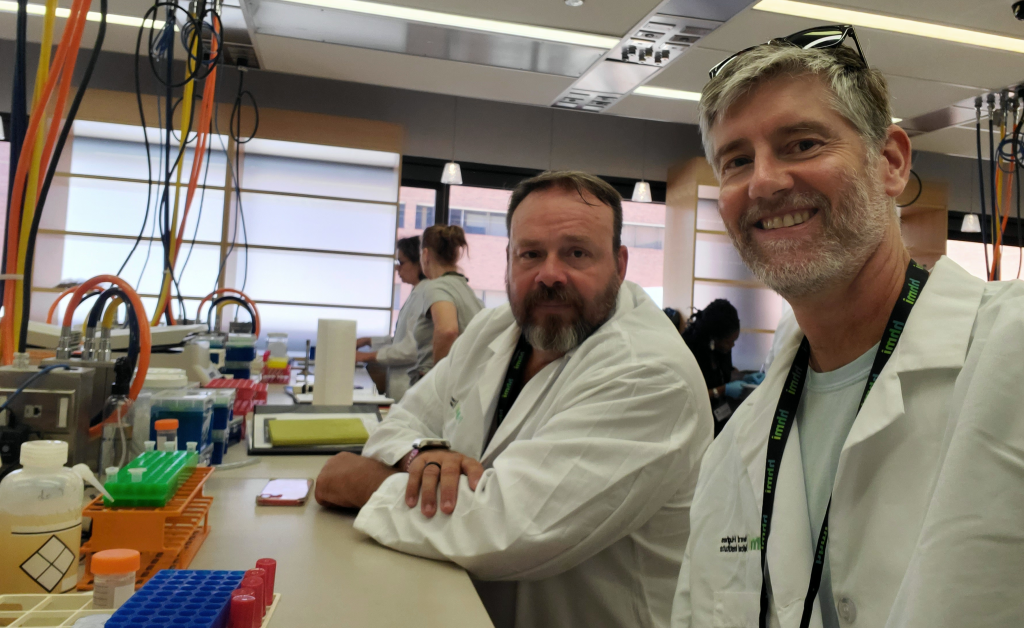
BSB 171 is the department’s new phage-hunting course. In it, students will learn basic biology concepts while spending the semester isolating, purifying, and characterizing a type of virus known as a phage. Phage, also known as bacteriophage, are viruses that infect and destroy bacteria. They are harmless to humans.
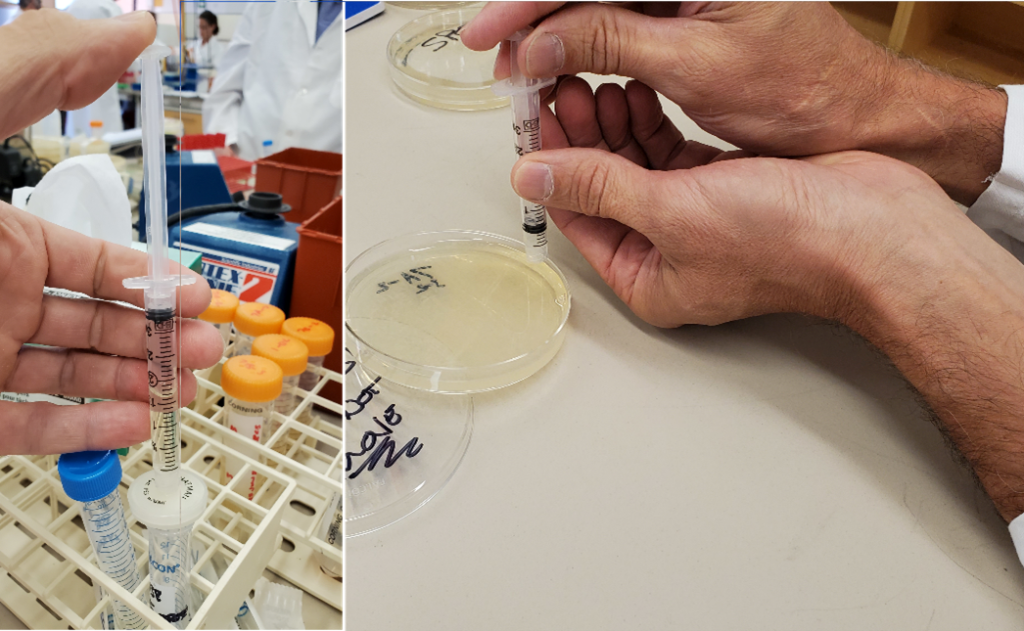
At the HHMI workshop, Dr. Crossley, Dr. Sample, and Dr. Burnes practiced the techniques to isolate phage collected from the local environment that they will be teaching to the BSB 171 students. The phage Dr. Crossley isolated may well be one that had never been isolated before. A picture of the phage isolated by Dr. Crossley as seen through an electron microscope is below.
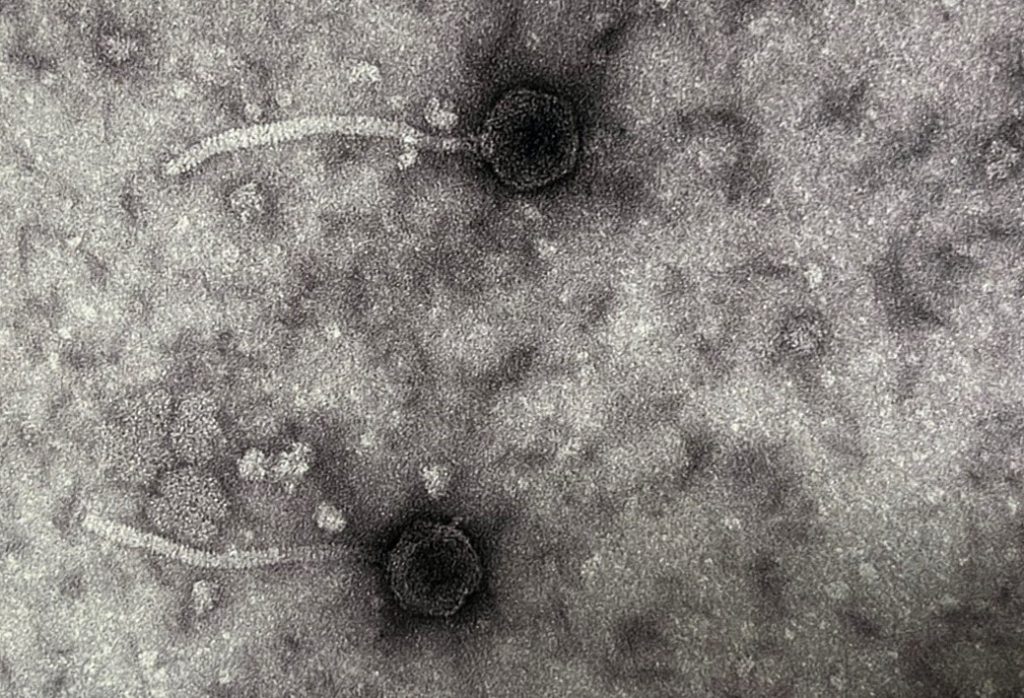
In a follow-up workshop later this Fall, which will also be attended by the BSB 171 instructors, one of the isolated phages from the workshop will be sequenced and further isolated. It was Dr. Crossley’s phage that was selected after each workshop member made a sales pitch for their work. Dr. Crossley’s sales pitch was in the form of a video presentation and was judged the most convincing. Her video is here.
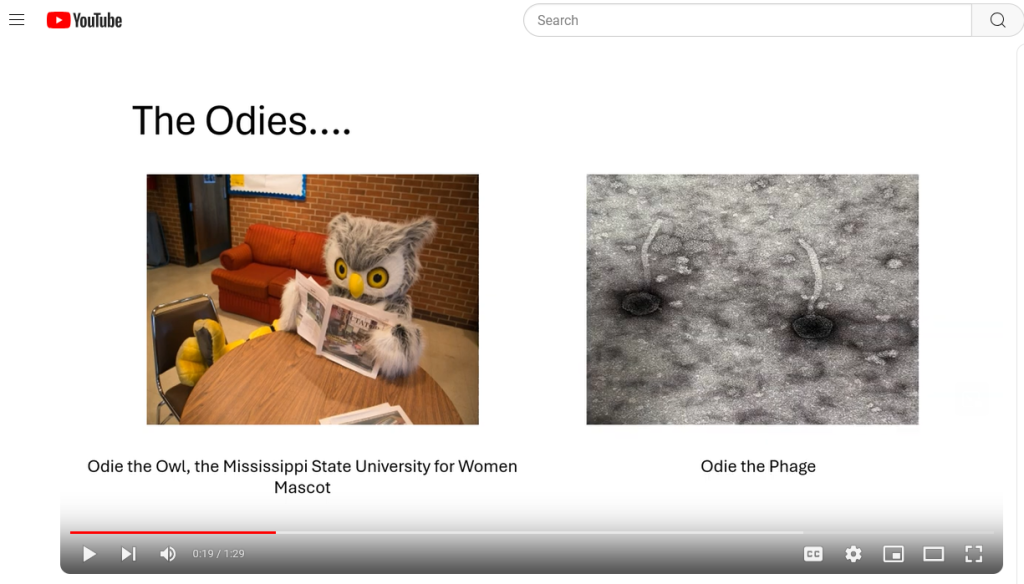
If the phage Dr. Crossley proves to be one that has never been discovered before, as appears likely, Dr. Crossley will get to choose the name the phage will be given in the scientific literature and databases. Dr. Crossley chose the name OdieOwl after the MUW mascot, Ody.

Students who take BSB 171 Biology I and BSB 172 Biology II will also attempt to discover and isolate phage that have never been characterized before. All students who are successful in finding a new phage will also get to choose whatever name they want for that phage and have that name, credited to the student, put in the international database of all phage.